15 Simple Tips to Fall Asleep Faster
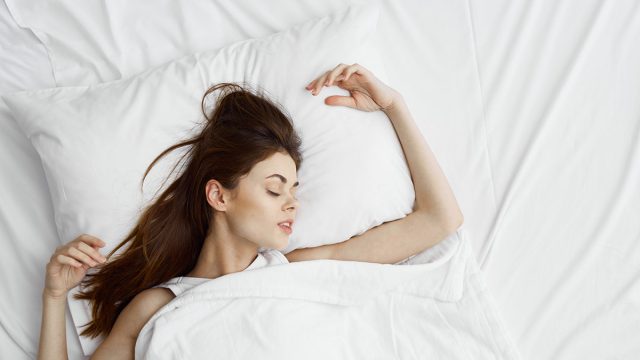
Good sleep is incredibly important for health and wellness. "Even without fully grasping what sleep does for us, we know that going without sleep for too long makes us feel terrible and that getting a good night's sleep can make us feel ready to take on the world," says Harvard Health. "Scientists have gone to great lengths to fully understand sleep's benefits. In studies of humans and other animals, they have discovered that sleep plays a critical role in immune function, metabolism, memory, learning, and other vital functions." If you're struggling with sleep, certain things can help make the process easier. Here are 15 tips to help you fall asleep faster.
Sleep and Wake Up Schedule
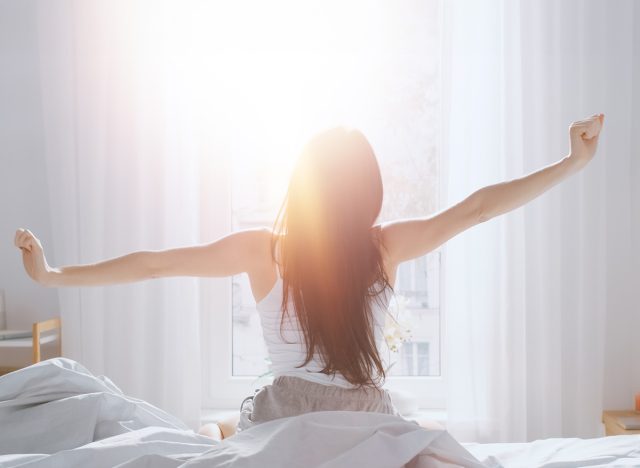
Going to bed and waking up at the same time is very beneficial for sleep quality. "Having a regular sleep schedule can positively affect key areas in your life, including your mental and physical health as well as performance," says the National Sleep Foundation. "Getting enough sleep from a regular sleep schedule can make it easier for you to cope with daily stress and less likely to be impacted by minor negative things that can come up."
Keep the Room Cold
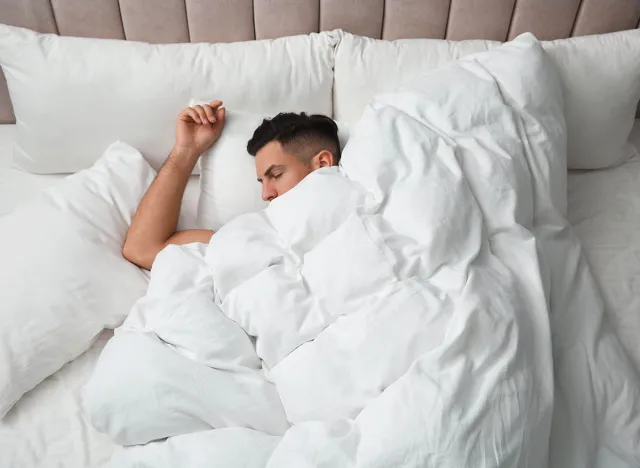
Experts recommend keeping bedroom temperature between 60-67 F. "Sleeping in a cold room will help decrease our body temperature and increase our natural melatonin production," Whitney Roban, PhD, tells Homes and Gardens. "Keeping cool at night will not only help you fall asleep but will prevent you from waking up at night overheating."
RELATED: 6 Easy Ways to Lose 10 Pounds By Summer
No Screens at Bedtime
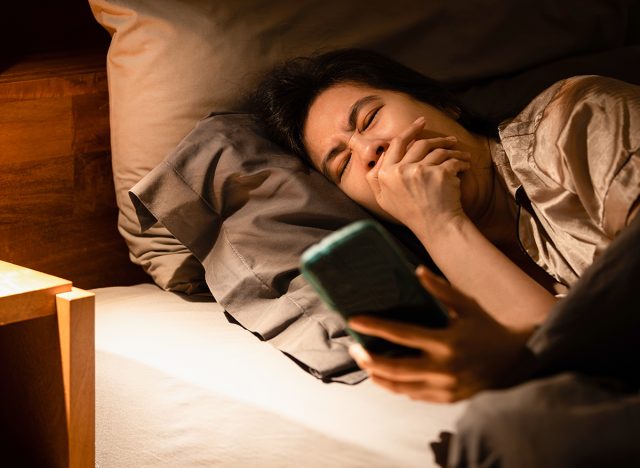
Try to avoid screens before bedtime. "The light from our screens can delay our transition to sleep, even if we are engaged in some soothing activity online," neurologist Joanna A. Cooper, MD, tells Sutter Health. "But it's more likely that our evening texting, television shows or video games are stimulating in themselves, keeping the brain busy and wound up, and even causing adrenaline rushes instead of calm."
Try Meditating

Sleep meditation can encourage relaxation and improve sleep quality. "I think we often start replaying the day in our mind and worrying about what we could have done better or what we didn't do right," Melissa Young, MD, tells the Cleveland Clinic. "These sleep meditations can be very helpful in releasing some of those thoughts."
Guided Imagery
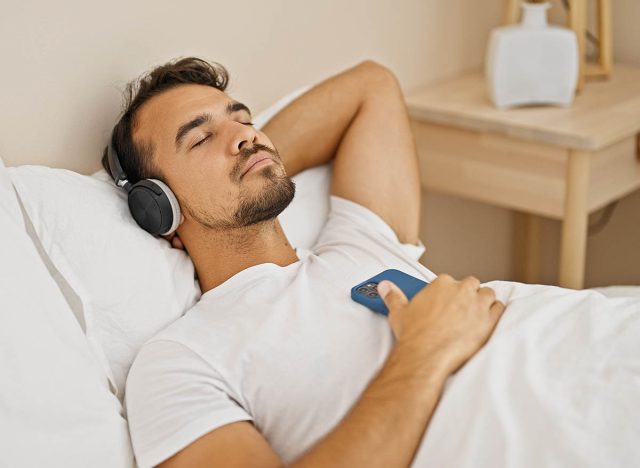
Guided imagery is a good entryway to meditation for beginners. "Over time, you can learn to do this on your own and go through a body scan or different breath techniques," Dr. Young says. "That way, you are actually learning to self-soothe and guide yourself into a more relaxed state with meditation."
Have a Sleep Routine

It's not just children who benefit from a sleep routine. Doing the same thing every night before bed lets your body know it's time for rest. "A wind-down routine is a simple plan to let your mind and body prepare for sleep every night," says the National Sleep Foundation. "Each person's approach is different but could include relaxing activities like reading a book, meditating, journaling, or listening to calming music before bed."
RELATED: I Lost 38 Pounds in 6 Months on Ozempic, Here's My Honest Review
Limit Alcohol Before Bed
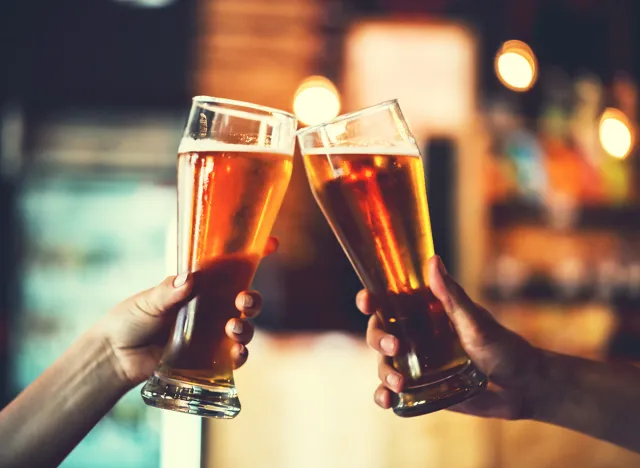
Alcohol is very disruptive to sleep. "While it's true that alcohol is a sedative, both having it in your system as well as the process of it wearing off can cause a variety of different problems," neurologist and sleep expert Jessica Vensel Rundo, MD, tells the Cleveland Clinic. "You're likely to experience fragmented sleep, insomnia or possibly more serious sleep issues."
Use an Air Purifier
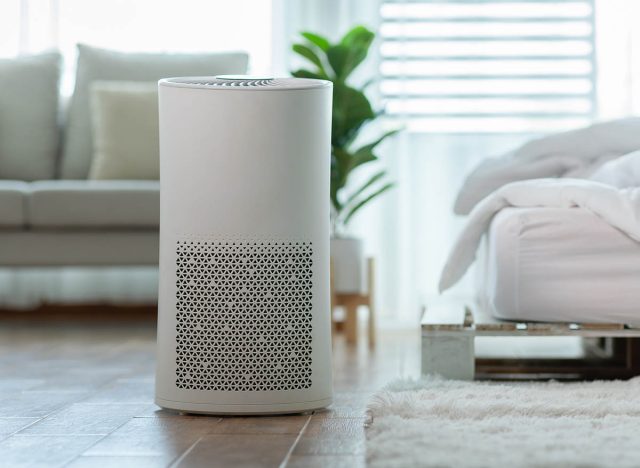
"Air purifiers remove harmful contaminants, such as pollen and dust," says the National Sleep Foundation. "Poor air quality can affect the soundness of your sleep, which in turn can affect your sleep satisfaction. Keeping your bedroom air clean may help you sleep better throughout the night."
Nicotine Disrupts Sleep
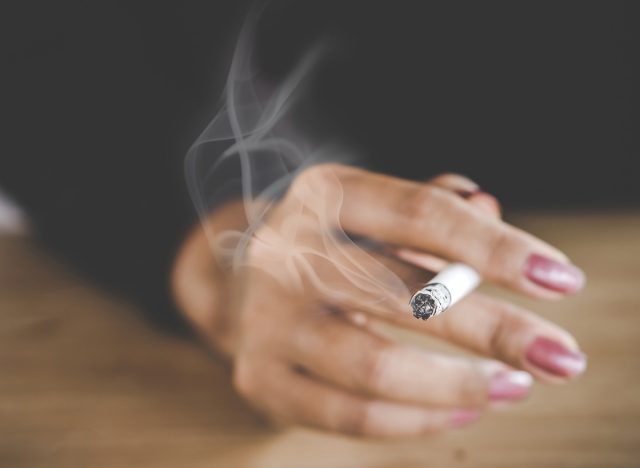
Nicotine can cause serious sleep issues. "Nicotine disrupts sleep – and smoking can also raise the risk of developing sleep conditions, such as sleep apnea," says Henry Ford Health. "But since nicotine is a stimulant, smoking can mask your exhaustion. After all, if you're feeling sleepy, a hit of nicotine can wake you up and make you feel alert the next day."
Be Mindful of Caffeine

Too much caffeine can make it incredibly difficult to fall asleep. "It's very important to be sure you're getting quality sleep," Dr. Rashad Ramkissoon tells Houston Methodist. "Certain afternoon and evening habits can get in the way of that, and caffeinated beverages are one prominent example."
RELATED: 15 Surprising Foods That You Can Eat to Lose Weight
Limit Daytime Sleep

Don't take naps if they interfere with night time sleep. "Short naps generally don't affect nighttime sleep quality for most people," says the Mayo Clinic. "But if you experience insomnia or poor sleep quality at night, napping might worsen these problems. Long or frequent naps might interfere with nighttime sleep."
Exercise Every Day
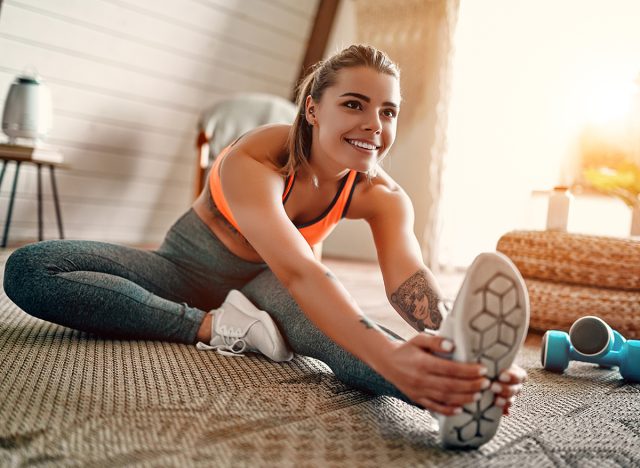
Exercising every day (but maybe not too close to bedtime) is very beneficial for sleep. "We have solid evidence that exercise does, in fact, help you fall asleep more quickly and improves sleep quality," says Charlene Gamaldo, MD, tells Johns Hopkins Health. "But there's still some debate as to what time of day you should exercise. I encourage people to listen to their bodies to see how well they sleep in response to when they work out."
Manage Stress
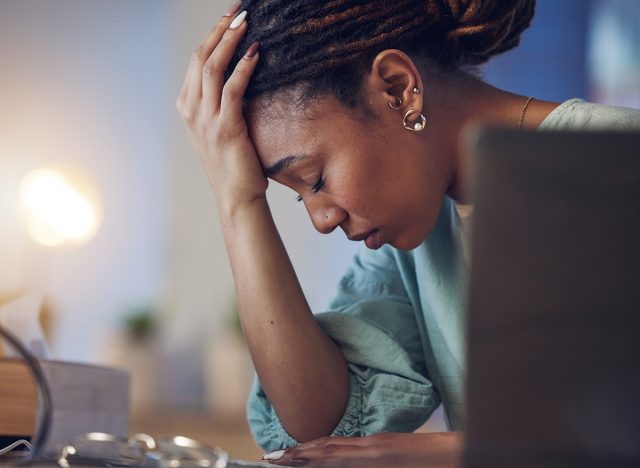
Make a serious effort to manage stress, as it can ruin sleep. "Stress and sleepless nights are closely linked," sleep expert Luis F. Buenaver, PhD, CBSM tells Johns Hopkins Health. "If you're in pain, tend to worry, or are coping with a difficult situation in your life, you may have more stress hormones than usual circulating in your body. A poor night's sleep adds even more. And those hormones may never be fully broken down. It's like running an engine in fifth gear all the time."
Keep the Room Dark
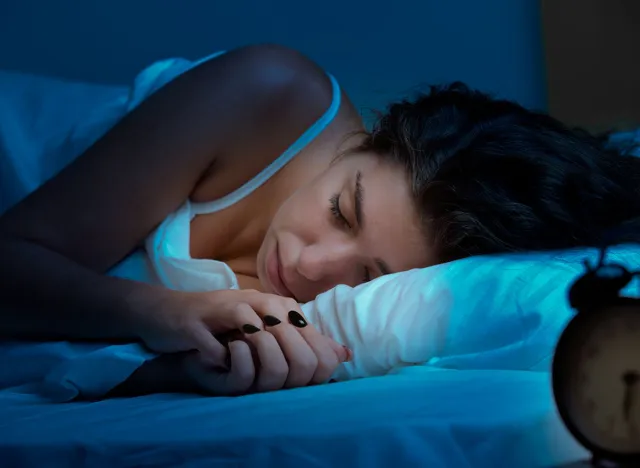
Keep your room as dark as possible for sleep. "Getting sunlight or equivalent indoor brightness early in the morning is a good thing, but light during the night can cause problems for sleep," says the National Sleep Foundation. "Different types of light can affect your quality of sleep."
RELATED: This Is Exactly How to Lose Body Fat This Year
Don't Force It
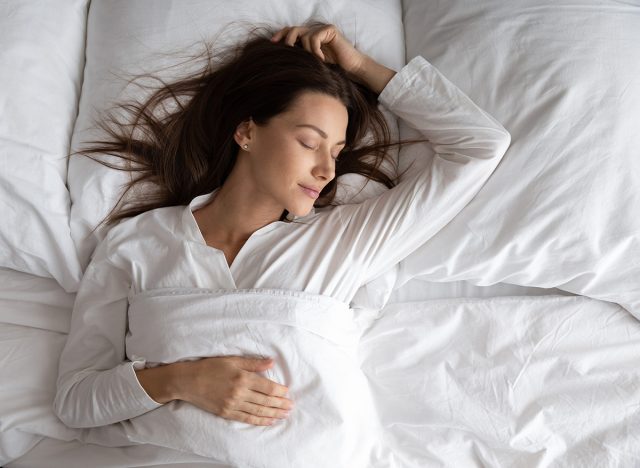
If sleep just isn't coming, don't force it. "If you're unable to fall asleep in what seems like or feels like 20 minutes or so, or you feel your body getting more amped up because you're getting anxious that you're not falling asleep, then I would recommend getting out of bed and sitting somewhere quietly with dim light and just relaxing, doing something boring," Kim Hutchison, a sleep medicine specialist at Oregon Health & Science University, tells Scientific American.
💪🔥Body Booster: Sleep in a cool room with the temperature set between 60-67°F for optimal sleep. And if you enjoyed this article, take advantage of these 15 Quick Ways to Lose Body Fat Percentage in a Week.




